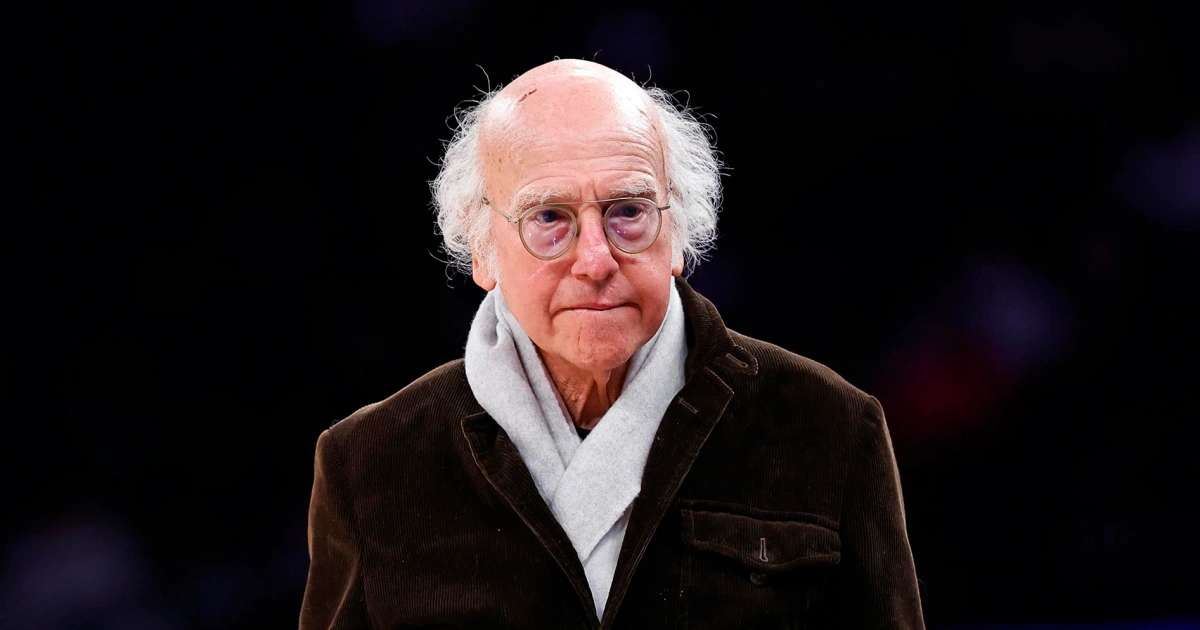“Curb Your Enthusiasm” star Larry David skewered comedian Bill Maher’s recent meal with President Donald Trump in a satirical essay in The New York Times this week. The title: “My Dinner With Adolf.”
In the essay, published Monday, David wrote from the perspective of a “vocal critic” of Hitler who is invited to dinner with the Nazi dictator and finds him to be surprisingly warm and personable.
“Here I was, prepared to meet Hitler, the one I’d seen and heard — the public Hitler. But this private Hitler was a completely different animal. And oddly enough, this one seemed more authentic, like this was the real Hitler. The whole thing had my head spinning,” David wrote in the six-paragraph essay.
“Two hours later, the dinner was over, and the Führer escorted me to the door. ‘I am so glad to have met you. I hope I’m no longer the monster you thought I was.’ ‘I must say, mein Führer, I’m so thankful I came. Although we disagree on many issues, it doesn’t mean that we have to hate each other.’ And with that, I gave him a Nazi salute and walked out into the night.”
David’s characterization of the imaginary dinner mirrored language Maher used in describing his real-life meeting with Trump on March 31. In his opening monologue of the April 11 episode of HBO’s “Real Time with Bill Maher,” the 69-year-old comedian said that “the guy I met” was not the same as the public-facing Trump, describing the president as “gracious and measured.”
David does not refer to Maher or Trump by name, but Patrick Healy, the Times’ deputy opinion editor, made the satirical connection explicit in a short message to readers Monday that accompanied the essay. Healy wrote that he “understood Larry’s intent in writing this piece.”
“We had spoken about American politics and how some on the left and in the center think it’s important to talk and engage with President Trump. Like many people, Larry listened to Bill Maher talk about his recent dinner with Trump; Bill, a comedian Larry respects, said in a monologue on his Max show that he found the president to be ‘gracious and measured’ compared with the man who attacks him on Truth Social,” Healy wrote.
“Larry’s piece is not equating Trump with Hitler,” Healy added. “It is about seeing people for who they really are and not losing sight of that.”
Maher’s spokespeople did not immediately respond to a request for comment Tuesday on David’s essay and Healy’s message.
Maher is a longtime critic of Trump and other Republicans, while also regularly taking aim at what he views as the excesses of progressive culture and the failures of Democrats. In his monologue about the dinner, Maher said he “didn’t go MAGA” but listed policy areas where he agrees with Trump, including moving Israel’s embassy to Jerusalem and restricting diversity, equity and inclusion programs.
In the monologue, Maher chided liberal critics who insisted he should not meet with the president: “Don’t talk as opposed to what? Writing the same editorial for the millionth time and making 25-hour speeches into the wind? Really, that’s what liberals have? He takes the piss out of everybody else, and we can hold ours?” (He appeared to be referring to a marathon speech from Sen. Cory Booker, D-N.J.)
David’s essay drew praise from anti-Trump liberals on social media. Rep. Jared Huffman, D-Calif., said in a post on X that it was a “must-read for Bill Maher and anyone who thinks normalizing and humanizing Trump is a good idea.” Democratic strategist Matt McDermott tweeted that the essay was “the stuff of comedy legend.”
Scott Jennings, a conservative CNN pundit, slammed David’s essay. In on-air comments, Jennings said the essay was indicative of “the modern left” and added: “It’s an attempt, always, to intimidate people into not ever doing it again. … That’s the purpose of this op-ed, so that the next comedian, or the next person on the American left, chooses not to speak to Donald Trump.”
Healy, in his message to readers, said that The Times’ opinion section has “a high bar for satire” and “a really, really high bar” for invoking Hitler in commenting on current events.
“Sometimes the best way to make an opinion argument isn’t in a traditional essay,” Healy wrote. “Americans are inundated with news; it can sometimes take a satirical provocation to break through, even at the risk of causing offense.”
“Larry David, in a provocation of his own, is arguing that during a single dinner or a private meeting, anyone can be human, and it means nothing in the end about what that person is capable of,” he added.
